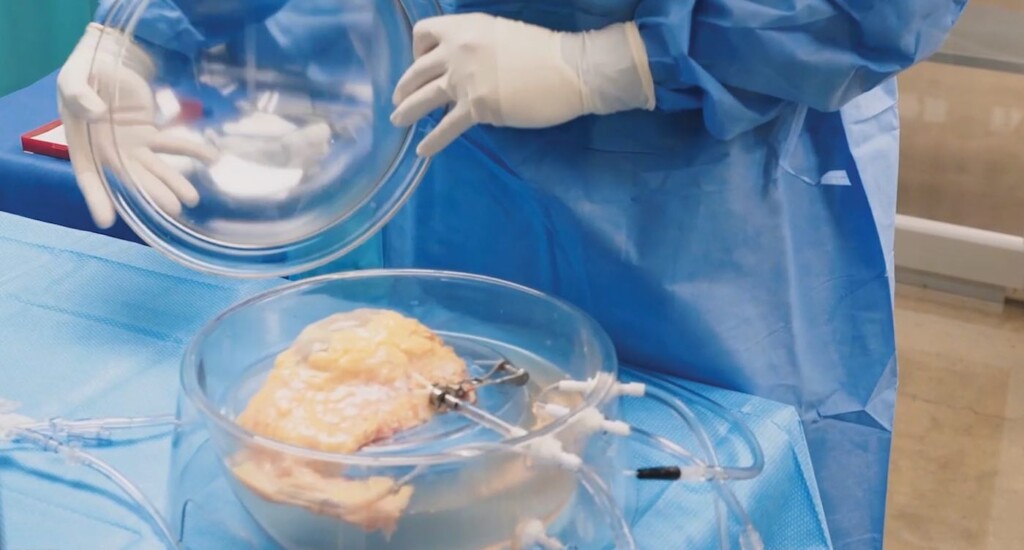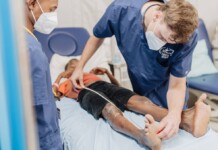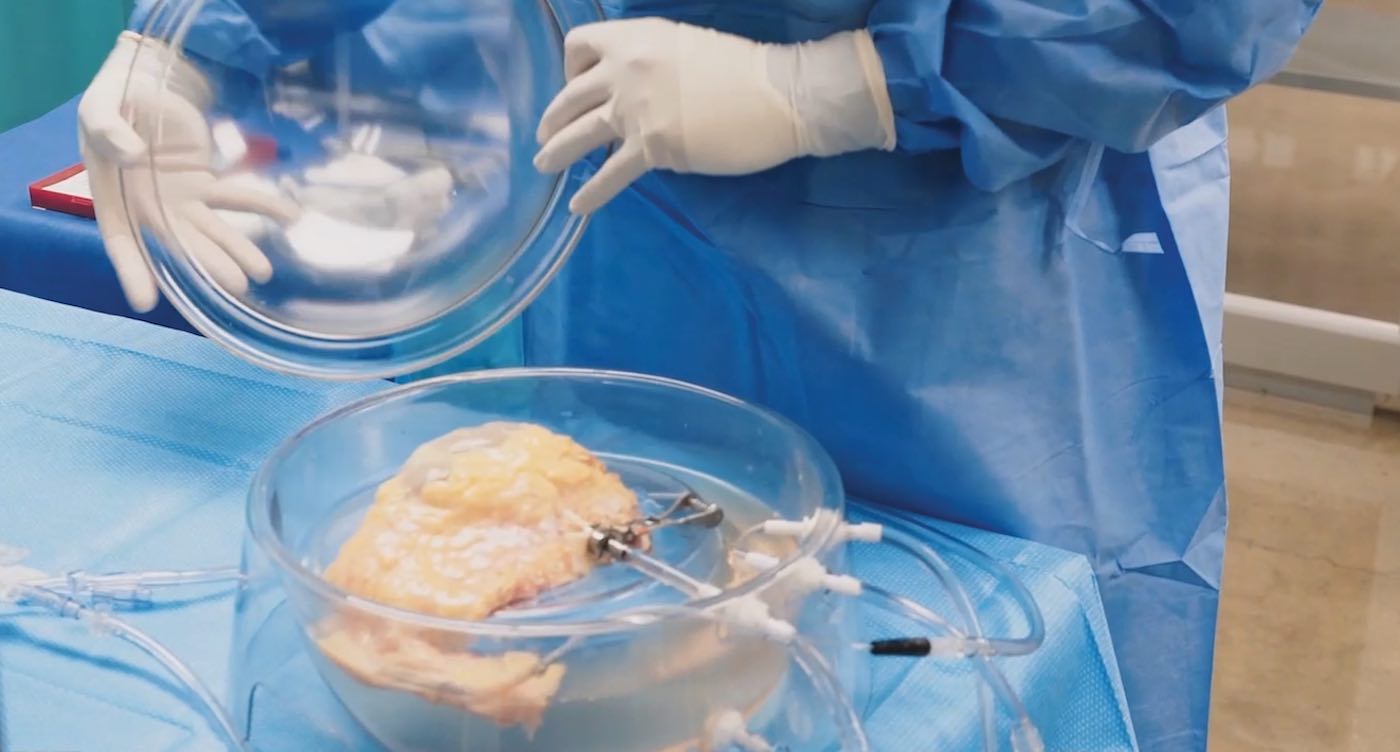
New technologies are often referred to as life-changing, but that phrase quite literally describes the work that 34 Lives is doing for those awaiting kidney transplants. The team’s innovative technology “revives” kidneys that might be otherwise rejected for consideration by transplant surgeons.
The team’s tenacious desire to save lives has resulted in ten successful kidney rescues and ten lives saved. And they’re just getting started.
More than 120,000 people in the US are waiting for a life-saving organ transplant and most of them are waiting for kidneys. When a patient joins the organ transplant waiting list, years can go by before a donor match is found. During this time, patients are often put on a grueling dialysis schedule and can become too sick to receive the transplant or die waiting. On average, 34 US lives are lost daily on the waitlist.
When the company considered where to plant its flag, West Lafayette, ten minutes from Pursue University, just made sense—Purdue has long supported groundbreaking startup companies like 34 Lives.
“We believe West Lafayette and the Purdue University ecosystem is the perfect fit for our startup,” said Jaynes. “Not only do we have access to world-class facilities and engineering talent, but we are able to merge our life-saving technology with Purdue’s aviation infrastructure. I can’t think of a better partnership.”
A giant leap in lifesaving tech
30% of kidneys recovered for transplant are discarded before they ever reach a recipient. These losses are not only devastating for those on the waitlist, but also for the families who hoped their loved ones could save a life.
“The whole mission around 34 Lives is centered around ensuring donated organs can save a life as it was intended,” said St. Jean. “To ensure we can save lives and honor the wishes of donors, we needed a holistic ecosystem to work from.”
A perfectly placed facility could change everything. That’s what 34 Lives found at Purdue Research Park.
Just minutes from Purdue University, the research park is one of the largest university-affiliated incubation complexes in the country and unites discovery and delivery. The flexibility of space in the research park meant the team could custom-build their own Organ Rescue Labs, two ORs where kidneys are revived and immediately sent out the door for transplant.
INNOVATIVE BIOTECH STARTUPS: Bioengineered Corneas Stand to Cure Blindness For Millions of People Around the World
The most critical piece of the kidney-saving puzzle is time. For every second that ticks by, kidneys become less and less viable and surgeons become more and more unwilling to risk a patient’s life.
When kidneys are transported to hospitals on commercial airlines, problems quickly arise. Flights can be delayed or missed. Coolers may be overlooked in cargo areas. Transportation time to distant hospitals can quickly run out the clock—an acceptable “out of body” time is approximately 24 hours.
For 34 Lives, the additional time it would take to transport a kidney from Chicago or Indianapolis airports could mean the difference between the kidney being recoverable or not. In fact, St. Jean confirms that if the team hadn’t had access to Purdue’s regional airport, their fifth successful kidney transplant wouldn’t have happened.
MORE NEWS LIKE THIS: Believe it or Not, Leprosy Offers the Potential to Regenerate Livers – Cutting Transplant Wait Times
Opportunities for first-class collaboration continue to expand with more high-tech companies taking note. For companies like 34 Lives and their patients, that connected ecosystem is everything.
With every kidney revived and every life saved, 34 Lives brings us closer to a future where no patient dies waiting for a transplant. The partnership with Purdue University exemplifies the power of collaboration and shared purpose, proving that when brilliant minds come together, world-changing solutions can become reality.
SHARE This Incredible Collaborative Work Improving Transplant Results…




















